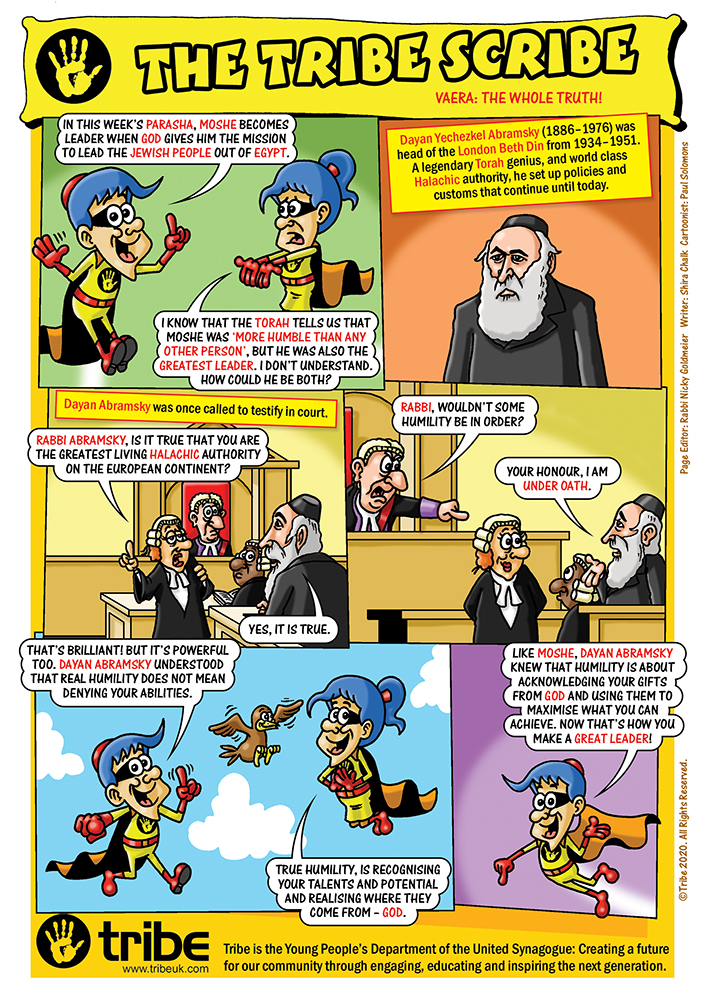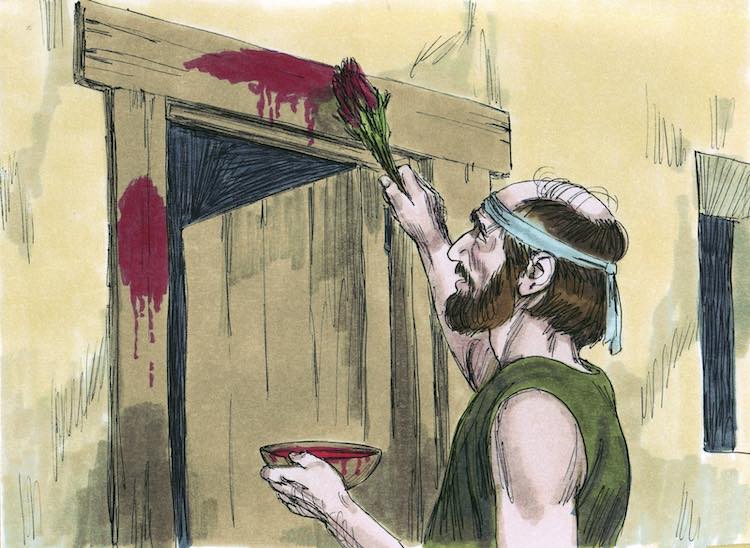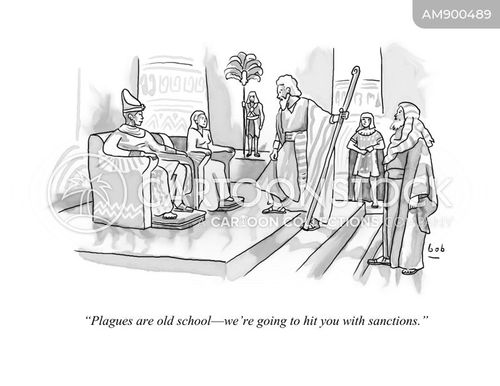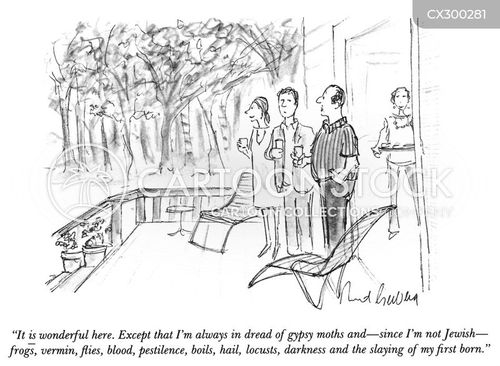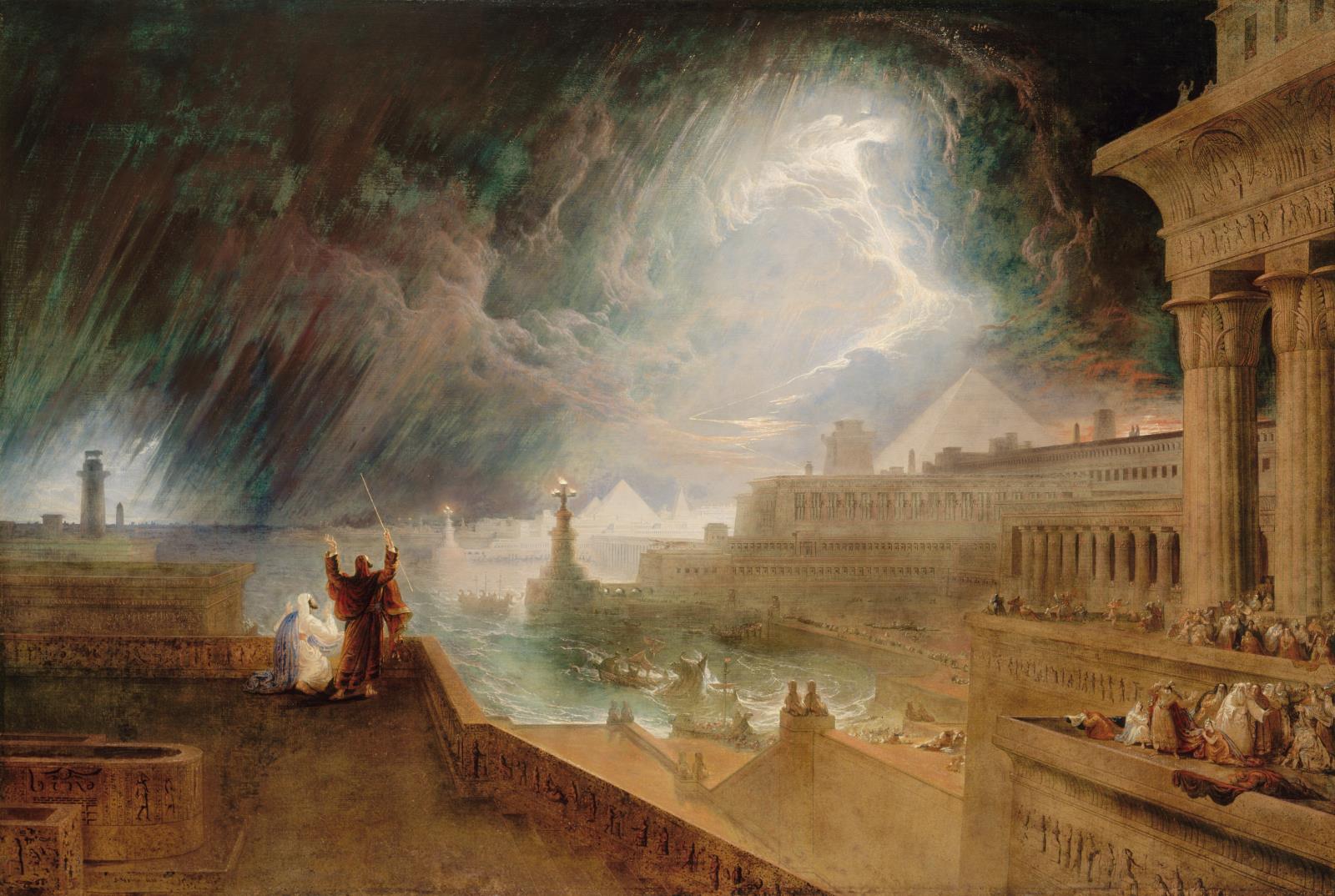Bonjour / Hello [nickname_else_first_name],
Table of contents
1) Perashat Hashavoua - Rabbi Eli Mansour
2) Halakhat Hashavoua (Halakhot related to day to day life) By Hazzan David Azerad - Laws of Shabbat
3) Holy Jokes!
1)PERASHAT HASHAVOUA
This Week's Parasha Insight with Rabbi Eli Mansour
Parashat Vaera- Moshe Was Human
Surprisingly, the Torah in Parashat Vaera interrupts the story of the Exodus from Egypt with a genealogical record of the first three of the tribes of Israel – Reuben, Shimon and Levi. It lists the names of the first several generations that descended from these three sons of Yaakob. Once the Torah reaches Moshe and Aharon, members of the tribe of Levi, this section ends, and the story of Yesiat Misrayim resumes.
The commentators offered different explanations for why the Torah found it necessary to list the names of the descendants of these tribes. A particularly insightful approach was taken by Rav Samson Raphael Hirsch (Frankfurt, Germany, 1808-1888), whose yahrtzeit is observed around the time this Parasha is read, on 27 Tebet. He explains that Moshe’s singular, exceptional stature of greatness gave rise to the concern that people would look to him as a type of divine being. We know of other religions that elevated their leaders to G-d-like status, Heaven forbid, finding it necessary to claim that the founder of their faith was more than just a human. Judaism, however, outright rejects such a notion. We of course admire and revere our spiritual heroes, but we firmly believe that they were human beings, sharing the same physical properties as the rest of us. At no point did Judaism ever embrace the notion that a human being can be a divine being.
And for this reason, Rav Hirsch writes, the Torah elaborates on Moshe’s family background. It wants to emphasize that Moshe, like us, was produced by a father and mother who got married, and that he had siblings, aunts, uncles, cousins, and a large extended family. Before Moshe confronted Pharaoh to bring the ten plagues and put the miraculous process of the Exodus into motion, it was necessary for the Torah to emphasize that Moshe was human, no less human than anybody else, a member of a family.
Rav Hirsch’s explanation brings to mind a brilliant insight of the Hatam Sofer (Rav Moshe Sofer, Pressburg, 1762-1839) to explain an otherwise perplexing comment of the Midrash. When the time came for Moshe to pass away, G-d said to him, "Hen Karebu Yamecha La’mut" – "Behold, the time of your death is approaching" (Debarim 31:14). The Midrash relates that Moshe responded by questioning why G-d used the word "Hen" in this context, in informing him of his imminent death. Moshe had used this same word earlier, in describing G-d’s unlimited power and dominion over the earth: "Hen L’Hashem Elokecha Ha’shamayim U’shmeh Ha’shamayim" ("Behold, G-d owns the heavens and the upper heavens…" – Debarim 10:14). Why, Moshe asked, would G-d use the word that he had invoked in praising Him to announce that he would soon leave this world? The Midrash does not tell us how G-d responded to Moshe’s complaint, why He chose to use the word "Hen" when informing Moshe that he would soon pass away.
The Hatam Sofer explained that G-d used this word precisely because Moshe’s death served to preserve the belief in G-d’s exclusive, absolute dominion over the earth. Moshe’s passing was, of course, a painful loss, but it was a crucial reminder that he was only human, that despite his unparalleled stature of greatness, he was not a divine being. And thus G-d informed Moshe about his imminent passing with the word "Hen" – hearkening to Moshe’s pronouncement of G-d’s unlimited rule over the earth, a tenet of faith which was reinforced by Moshe’s death, as his mortality demonstrated that he was human, and not a G-d.
2) HALAKHAT HASHAVOUA
Halachot this week are selected and Translated by Hazzan David Azerad
Laws of Shabbat according to the rulings of Rabbi Obadia Yosef ZT"L
If a person has made Kiddush already, can he repeat the Kiddush for someone else?
A person can recite the Kiddush for someone who does not know how to recite the Kiddush for himself and he can repeat the Kiddush again for members of his household. Regarding drinking of the wine, there are two options:
A. He may drink (Re’viit) approximately 3 oz (86 grames )or half a cup of the wine that is in the cup and that fulfills the requirement of "קידוש במקום סעודה" "Kiddush followed by a meal " then he has fulfilled the obligation of Kiddush, and is allowed to repeat the Kiddush for his household again.
B. He (the one reciting Kiddush) should not taste the wine at all, rather the listener should taste at least the majority of a Re’viit of it [approximately 41 grams], then the one who recited Kiddush has himself not fulfilled the obligation of kiddush.
If one is unable to drink the wine of the Kiddush - what should he do?
At the end of the Kiddush, the one reciting Kiddush should drink most of the cup, which is about a cheek full, approximately 41 grams, and if it is difficult for him to drink so much, he should drink a little, and give the remainder to one of the listeners to drink.
The most ideal way to perform the mitzvah is for those who hear the Kiddush is to taste the wine as a sign of love of the mitzvah, and it also serves as an omen (segulah) for healing the eyes.
Bevirkat Shabbat Shalom Umevorach
David Azerad
3) HOLY JoKeS!!
Selection of funny snippets, loosely related to this weeks parashah or current events, to brighten your day
----
It affected the parenting of the Egyptians. Let me explain. The Egyptian parents had a very liberal approach to parenting, basically allowing their children to do whatever they wanted. There was only one thing that they were strict about: water fights. Why be so strict with water fights?
BECAUSE THEY WERE AFRAID THAT THEY WOULD TURN BLOODY!
---
The second plague was the plague of tzfardaya, most commonly translated as frogs. The frogs went all over the place. The frogs went into people’s hats. The frogs went into people’s shirts. The frogs even went into people’s slippers. This inspired Dr. Suess to write a children’s book called FROGS IN CLOGS!
Finally, the frogs went into the main Coca Cola plant in downtown Cairo. The frogs scaled the high walls surrounding the Coca Cola plant and headed straight for the humongous vats of Coca Cola. The workers at the plant had no idea that the soda was full of frogs. The poured the frog-filled soda straight from the vats into bottles. When the Egyptians opened their bottles of Coke, frogs started jumping out. When Coca Cola found out about this, they immediately changed their slogan. The new slogan went like this: “DRINK CROAK, ENJOY LIFE!”
---


